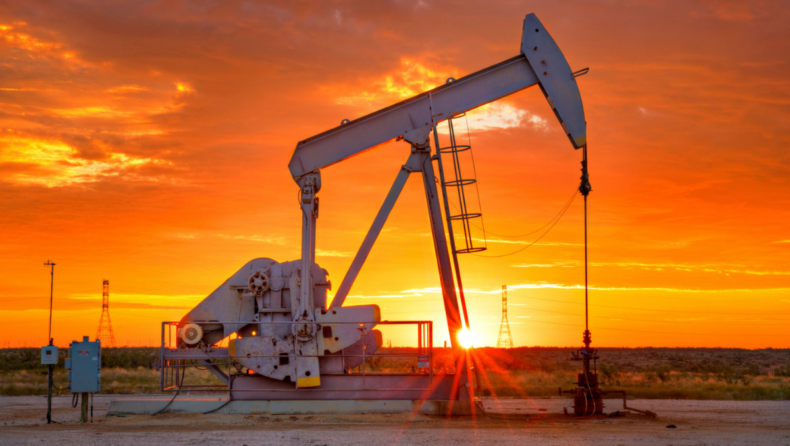Petroleum “Petrol and diesel” prices remained stable on July 9, according to the most recent price announcement released by fuel retailers, with prices being unchanged for more than a month after the government lowered the excise duty on petrol by Rs 8 per litre and on diesel by Rs 6 per litre on May 21.
According to the most recent price notification published by fuel merchants, gasoline and diesel prices remained stable on July 9. Fuel prices have remained stable for more than a month after the government reduced excise tax on petrol by Rs 8 per litre and diesel by Rs 6 per litre on May 21.
The tax reduction reduced the price of petrol in Delhi by Rs 9.5 and diesel by Rs 7. In Delhi, a litre of petrol costs Rs 96.72 and a litre of diesel costs Rs 89.62.
Petrol costs Rs 111.35 a litre in Mumbai, while diesel costs Rs 97.28. In Chennai, fuel and diesel cost Rs 102.63 and Rs 94.24, respectively, while in Kolkata, petrol costs Rs 106.03 and diesel costs Rs 92.76.
According to reports, oil marketing corporations are losing Rs 13.08 per litre of petrol and Rs 24.09 per litre of diesel even as they pass on the excise tax drop to consumers in the country. Imports supply 80 percent of India’s fuel needs.
The Presbyterian Church (U.S.A.) has decided to withdraw its investments from five energy businesses, joining other faith-based organisations in criticising fossil-fuel companies for alleged failures to address climate change.
The denomination’s General Assembly, which met online this week, unanimously approved a resolution to divest from Chevron, ExxonMobil, Marathon Petroleum, Phillips 66, and Valero Energy.
In recent years, Presbyterian authorities have attempted to persuade some fossil fuel firms to take efforts to minimise greenhouse gas emissions. According to the resolution, these efforts did not result in enough significant change or action by the five firms now targeted for divestment.
The church’s interests account for a minor percentage of the market capitalisation of the five firms. However, proponents of divestment argue that it will send a statement and encourage firms to modify their policies in response to climate change.
According to the Global Fossil Fuels Divestment Commitments Database, a website maintained by climate advocacy groups, numerous, mostly progressive faith-based groups in various countries, including religious orders, dioceses, and denominations such as the Episcopal Church and the Unitarian Universalist Association, have decided on partial or full divestment from fossil-fuel companies. (AP)
What Is Petroleum?
Petroleum is a naturally occurring liquid that exists under the earth’s surface and may be processed into fuel. Petroleum is a fossil fuel, which means it was formed over millions of years by the breakdown of organic matter. Petroleum is created when enormous amounts of dead animals, typically zooplankton and algae, are exposed to extreme heat and pressure beneath sedimentary rock.
Petroleum is used as a fuel in automobiles, heating units, and equipment, and it is also processed into polymers and other products. The petroleum industry is immensely strong and has a significant effect on international politics and the global economy because the majority of the globe relies on petroleum for many commodities and services.
Understanding Petroleum
Petroleum production and processing, and hence its availability, is a significant driver of the global economy and geopolitics. Some of the world’s top corporations are involved in the extraction and processing of petroleum, while many more corporations manufacture petroleum-based goods such as plastics, fertilisers, vehicles, and aeroplanes.
Petroleum is used to make asphalt, which is used to pave roadways. Vehicles that travel on roadways are made of petroleum-derived materials and operate on petroleum-derived fuels.
Oil drilling is used to recover petroleum. It is purified and separated once it has been retrieved. It is often processed into several sorts of fuels. Petroleum comprises a variety of hydrocarbons with varying molecular weights.
Petroleum Types
Petroleum is a very versatile fossil fuel that may be converted into a wide range of products. Gasoline, kerosene, fuel oil, and lubricating oil are common examples. Gasoline is mostly used to power automobiles. It is used in automobiles, motorbikes, and other vehicles, as well as in tiny engines like lawnmowers.
Kerosene oil is generally used for lighting, such as in kerosene lamps, as well as in various heaters and in the production of rocket fuel and jet fuel. Heaters and furnaces utilise fuel oil to heat interior rooms. Lubricating oil has various applications, the most common of which is as a lubricant to minimise friction.
Read More-
- What causes the rupee collapse, and what can the Reserve Bank do?
- Former Japanese PM Shinzo Abe passes away shortly after being shot
- The shooting of Japan’s former leader shocks the country, scarce weapons
- A chronology of former Japanese Prime Minister Shinzo Abe’s career
- The rupee descent to successive record lows pits RBI against a bearish market













